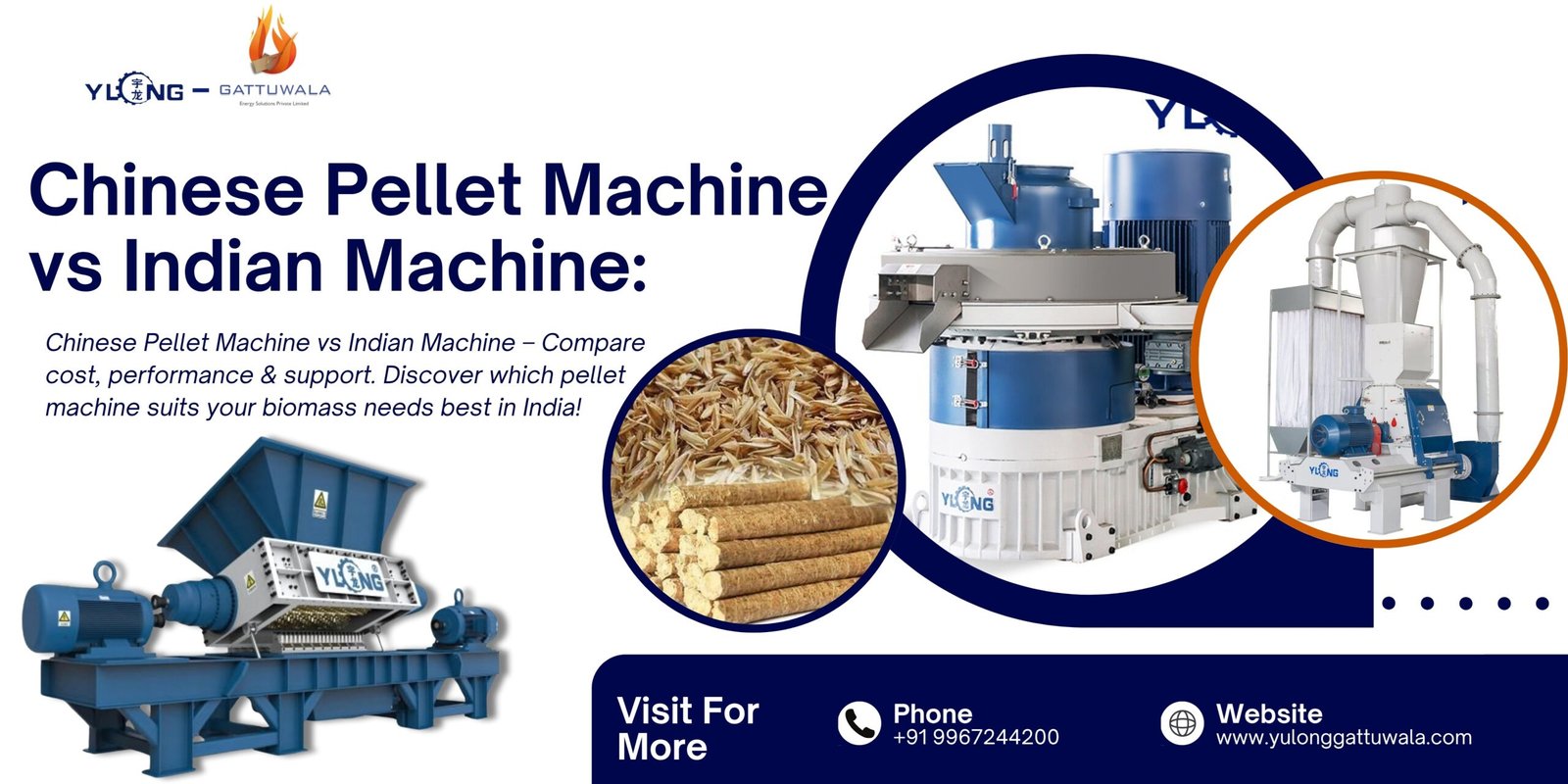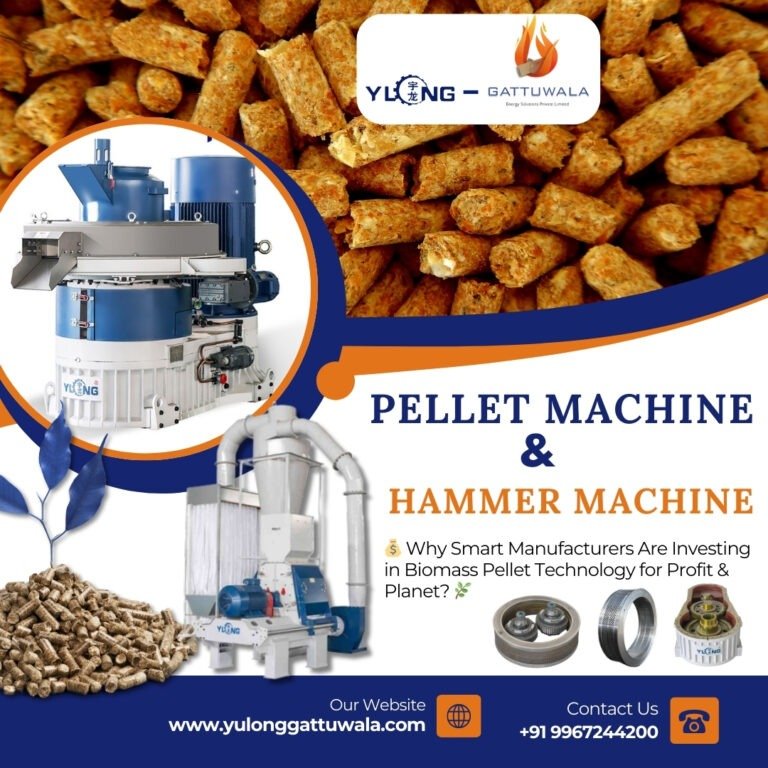- July 15, 2025
As global demand for sustainable energy grows, pellet machines have become essential tools for converting biomass waste into clean, renewable fuel. But when it comes to sourcing the right equipment, one of the biggest decisions businesses face is: Should you buy a Chinese pellet machine or invest in an Indian-made one?
In this article, we’ll compare Chinese pellet machines and Indian pellet machines across key factors like price, quality, service, government support, and long-term reliability — helping you make an informed decision that suits your production needs and budget.
💰 1. Cost Comparison: Chinese Machines Are Cheaper, But at What Cost?
One of the biggest reasons many businesses initially lean toward Chinese pellet machines is the lower upfront cost. Chinese manufacturers, due to economies of scale and mass production, often offer machines at prices 15-30% lower than Indian alternatives.
However, many Indian manufacturers argue that “cheap” does not always mean “cost-effective.” While Indian machines may carry a slightly higher price tag, they are often built with stronger materials, better after-sales service, and customization suited to local feedstock.
Verdict: Chinese machines are cheaper initially, but Indian machines may offer better long-term ROI.
🔧 2. Build Quality & Performance: Indian Machines Have an Edge
Indian pellet machine manufacturers have grown rapidly in both innovation and machine quality over the past decade. Brands like Gattuwala, Ecostan, and Ronak Engineering now produce machines that rival — and in some cases outperform — Chinese models in terms of:
• Energy efficiency
• Durability
• Output capacity
• Adaptability to Indian biomass (like agricultural waste, sugarcane bagasse, paddy husk)
On the other hand, while Chinese machines are mass-produced and versatile, they may not always perform well with diverse Indian raw materials without costly modifications.
Verdict: Indian machines are often better optimized for local conditions and materials.
🛠️ 3. After-Sales Service & Spare Parts: Indian Brands Win
One of the biggest challenges with imported Chinese pellet machines is after-sales support. Many buyers struggle with:
• Language barriers
• Long delays for spare parts
• Lack of trained local technicians
• Complex warranty claims
Indian manufacturers offer faster and more accessible customer service, local installation support, and quick spare parts replacement. Moreover, Indian companies like Yulong Gattuwala Energy also offer AMC (Annual Maintenance Contracts), site visits, and training programs for operators.
Verdict: Indian machines offer superior customer support and service reliability.
🏛️ 4. Government Tenders, Subsidies & Compliance: India Has the Home Advantage
Indian pellet machine manufacturers are more likely to comply with local pollution control norms, energy efficiency standards, and are better aligned with government schemes.
When applying for government tenders or renewable energy subsidies, buyers often get preference for “Make in India” equipment. For example, MNRE (Ministry of New and Renewable Energy) offers financial support to domestic pellet projects using Indian machinery.
Chinese machines may not always meet required documentation or subsidy conditions.
Verdict: Indian machines align better with government tenders and subsidy policies.
🌍 5. Environmental Impact & Carbon Footprint
Transporting pellet machines from China adds to the carbon footprint of your project, which may contradict the goals of a renewable energy venture. Choosing a locally made machine not only reduces emissions but also supports India’s green economy.
Verdict: Choosing Indian-made equipment supports sustainability.
🚀 Final Verdict: Which Should You Choose?
Biomass pellet machines are key to promoting the circular economy model, where waste is reused to create new value. Instead of letting agricultural waste go to landfills, it can be processed and returned to the economy as biofuel—closing the loop.
This shift is not only environmentally responsible but also aligns with corporate ESG (Environmental, Social, Governance) goals, improving brand value and investor trust.
While Chinese pellet machines may seem attractive due to their pricing, Indian manufacturers have closed the quality gap and now offer far better value through custom solutions, service reliability, and subsidy support.
If you’re a business or farmer looking to start or scale your biomass pellet production in India, working with a Pellet Machine Manufacturer in India like Gattuwala Energy Solutions ensures that your investment is backed by:
• Proven technology
• Local service engineers
• Spare part availability
• Government compliance
By choosing an Indian machine, you also contribute to the Make in India initiative and support the nation’s clean energy mission.
📞 Interested in setting up a biomass pellet plant in India? Contact Gattuwala Energy for expert consultation, equipment, and government subsidy support.






